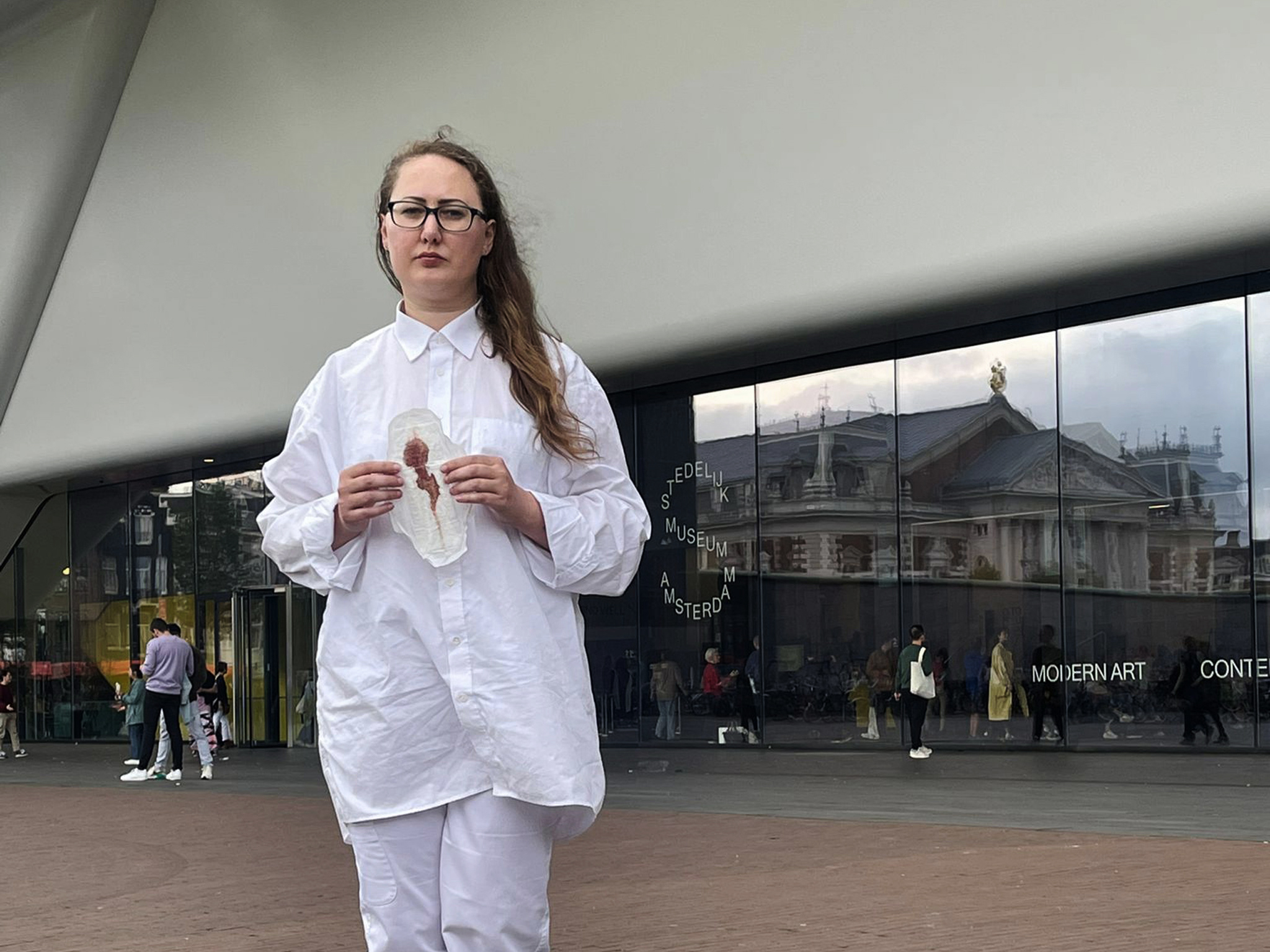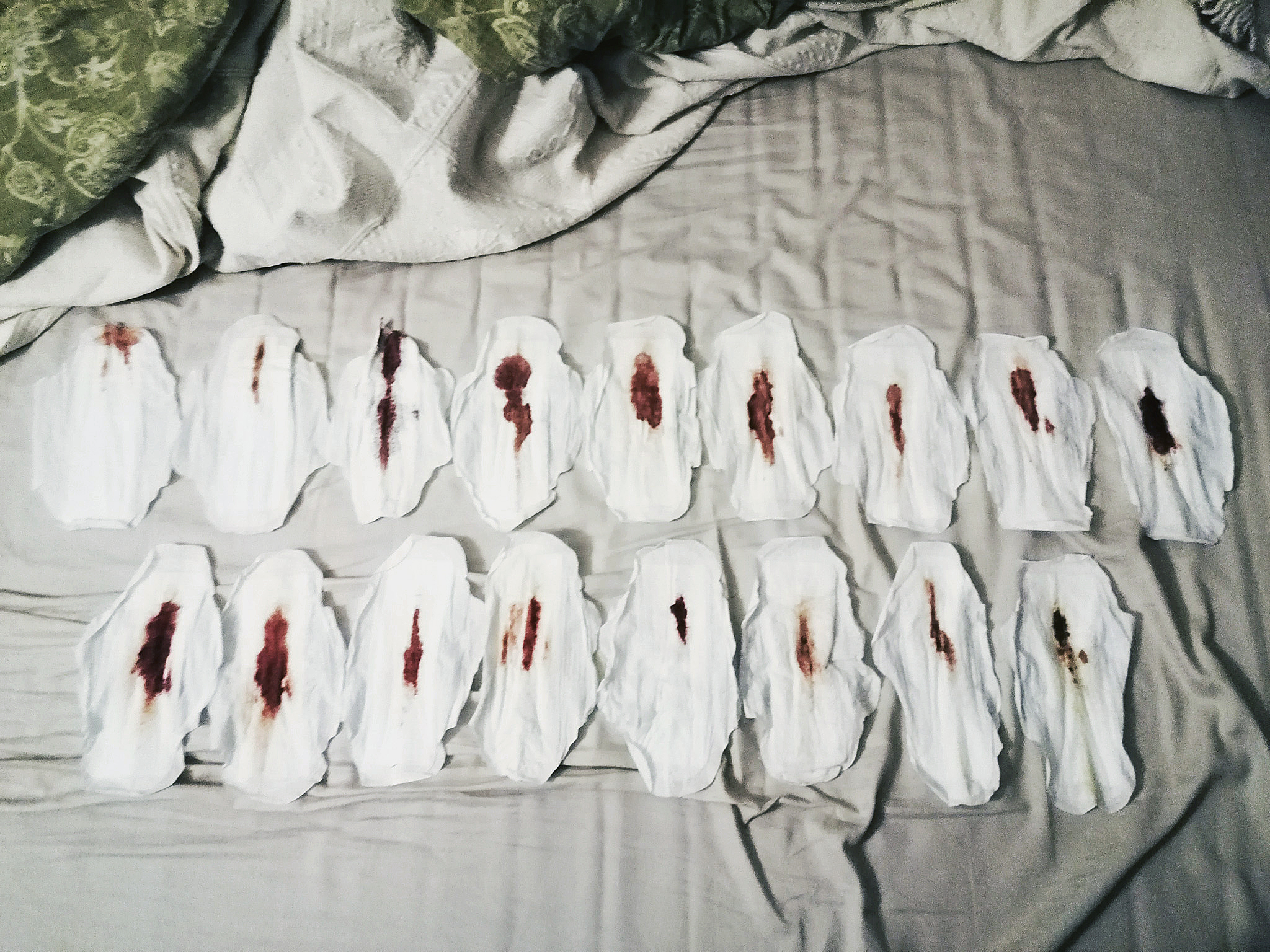women´s problems: discreet procession
Born out of the urgency to smuggle women´s problems into the Stedelijk Museum Amsterdam, this project uses menstrual pads as artworks to challenge menstruation stigma and raise awareness around issues like period poverty. By offering these pieces to museums, the project encourages public dialogue and aims to dismantle taboos related to menstruation. It draws attention to period poverty globally, especially in places like India, where girls often lack access to sanitary products, using unsafe alternatives instead. In developed countries, the "pink tax" which treats menstrual products as luxury items, adds to the financial strain on menstruators. Some European countries have improved access with free products in schools and prisons, but policies remain inconsistent. Further complicating this issue is growing concern over the safety of menstrual products. Studies have detected harmful substances in tampons, including heavy metals (like lead and mercury), PFAS "forever chemicals," and other toxic substances like dioxins and pesticides. PFAS, known for their durability and health risks, accumulate in the body, potentially causing cancers, immune suppression, and hormonal issues. Despite these findings, regulations around menstrual products are inconsistent, with limited testing requirements in the U.S. and Europe. Reports like the CODE ROOD 2024 emphasize that menstruation poverty and product safety impact health, well-being, and economic stability, and call for comprehensive, consistent policies and better regulation to make menstrual health a global priority.
Documented outside by Aida Kristina Dedeic



